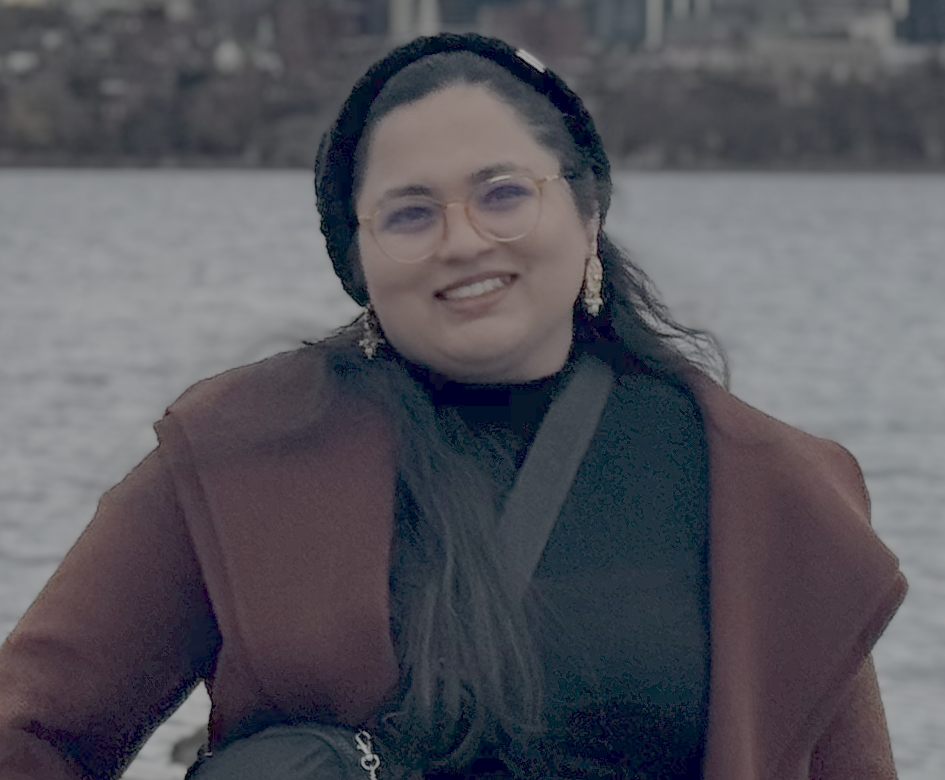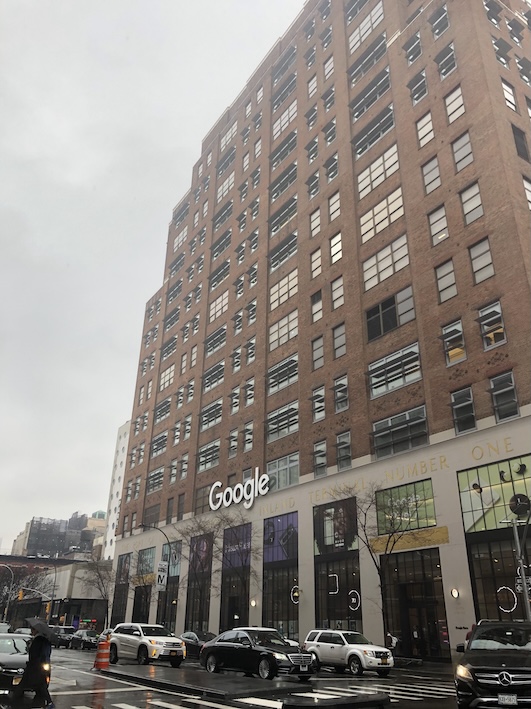
In 2019, I was living in NYC and was enrolled in a study-away program at NYU Tandon School of Engineering. One evening, I decided to attend a panel discussion where three remarkable women working at Google talked about their experience. This is where I learnt about Google's 20% Time Program. I will get to have a say in what I build as a part of the company that impacts millions globally, I thought. Fast-forward to 2021, if anyone asked me what is my plan after graduation, I would say: "I want to live in New York and work at Google." After all this time, my answer remains the same.
I had walked by the Google buildings multiple times during my time living in or visiting New York. In fact, the photo attached to this post was taken during one of those strolls. Little did I know that I would get to visit the place very soon. One of my mentors who works at Google offered to give me a tour of the place and I was over the moon. I got to visit my dream company. I walked its halls, ate in its dining space, and was a part of the Google clan albeit as a guest for a couple of hours. This is the closest I had been to the dream that has been brewing for years. I was one step closer. I don’t know when or how it’ll happen, but I know I’m ready. And I know I’ll keep trying.
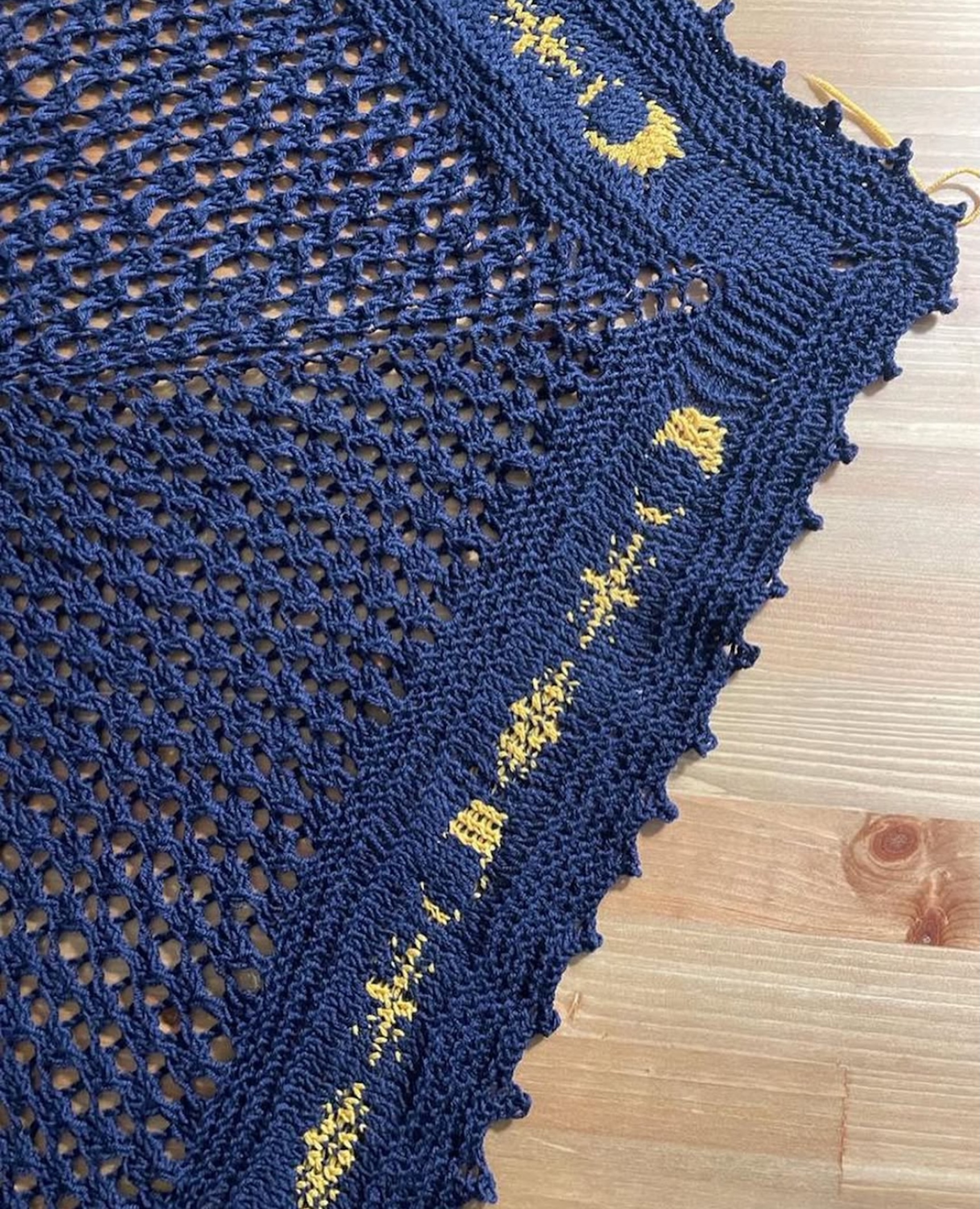
When I was around 10 or 12, my mom got into a frenzy of knitting caps. That winter, she made caps for everyone we knew and that’s a lot of people. I was fascinated by how her hands moved in repetitive patterns. At first glance, it seemed like nothing was happening, but if you came back an hour later, the cap was noticeably bigger.
I remember picking up the needles and trying to mimic her movements, but I kept losing hold of either the sticks or the yarn. Still, I was determined to learn, so I begged her to teach me. The lessons were an absolute disaster. My mom is right-handed and I am left-handed. I kept using the wrong hand, twisting the yarn the wrong way. She couldn’t teach me, I couldn’t learn — and we didn’t try again for a long time.
A couple of years later, when I was 15, her knitting obsession returned- this time with baby clothes. I was home for the winter, and I knew I had to give it another go. So I turned to YouTube and looked up left-handed knitters. And I learned! I started practicing with the leftover yarn my mom was willing to part with. She’s not easy to impress, and it took a hot minute before she admitted my handiwork was up to her standards. Eventually, I earned the honor of knitting the back panel of the baby sweater she was making.
Since then, knitting has been my favorite hobby of all. I love watching those tiny knots grow into something whole: a hat, a scarf, a sweater. Maybe it is something about the slow growth or the persistence and patience it takes and there is almost always a happy ending. For the last five years, knitting has become my winter tradition. I let that left hand do its thing and voila, I can make pretty woolen goods now.
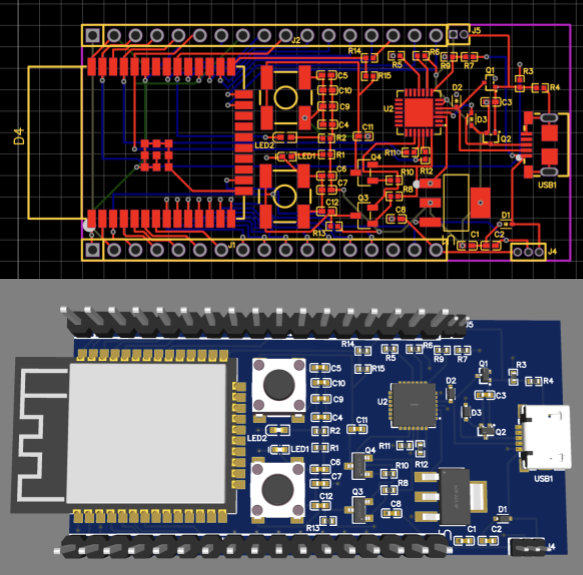
I was nervous about writing this piece because I wasn’t ready to expose myself like this. As someone with a bachelor’s in Electrical Engineering, it felt embarrassing to admit that I had signed up for an electronics bootcamp. I even debated whether to attend at all. But I knew where I stood with my skills and I knew I was never gonna let embarrassment stop me from learning. So I enrolled. Yes, I sat through the first lecture reviewing Electronics 101. But that was never the point.
Even though my degrees were in Electrical Engineering, my focus had shifted over the years towards computer science. After six years of not touching a circuit, I wanted to come back to it. I didn’t want to call myself an Electrical Engineer without being able to build an electrical system. I wanted to earn the title.
The two-week bootcamp reminded me how much I missed getting my hands dirty. And to my surprise, it reconnected with something I love deeply: product-building. In fact, it sparked the idea for my smart plant monitoring system.
That’s what mattered, not the refresher, but the momentum. Maybe I’ll never have a full-time career in hardware, but now I know this: I’m not afraid to start from scratch. And when it matters and when something needs to be built, I can put the pieces together.
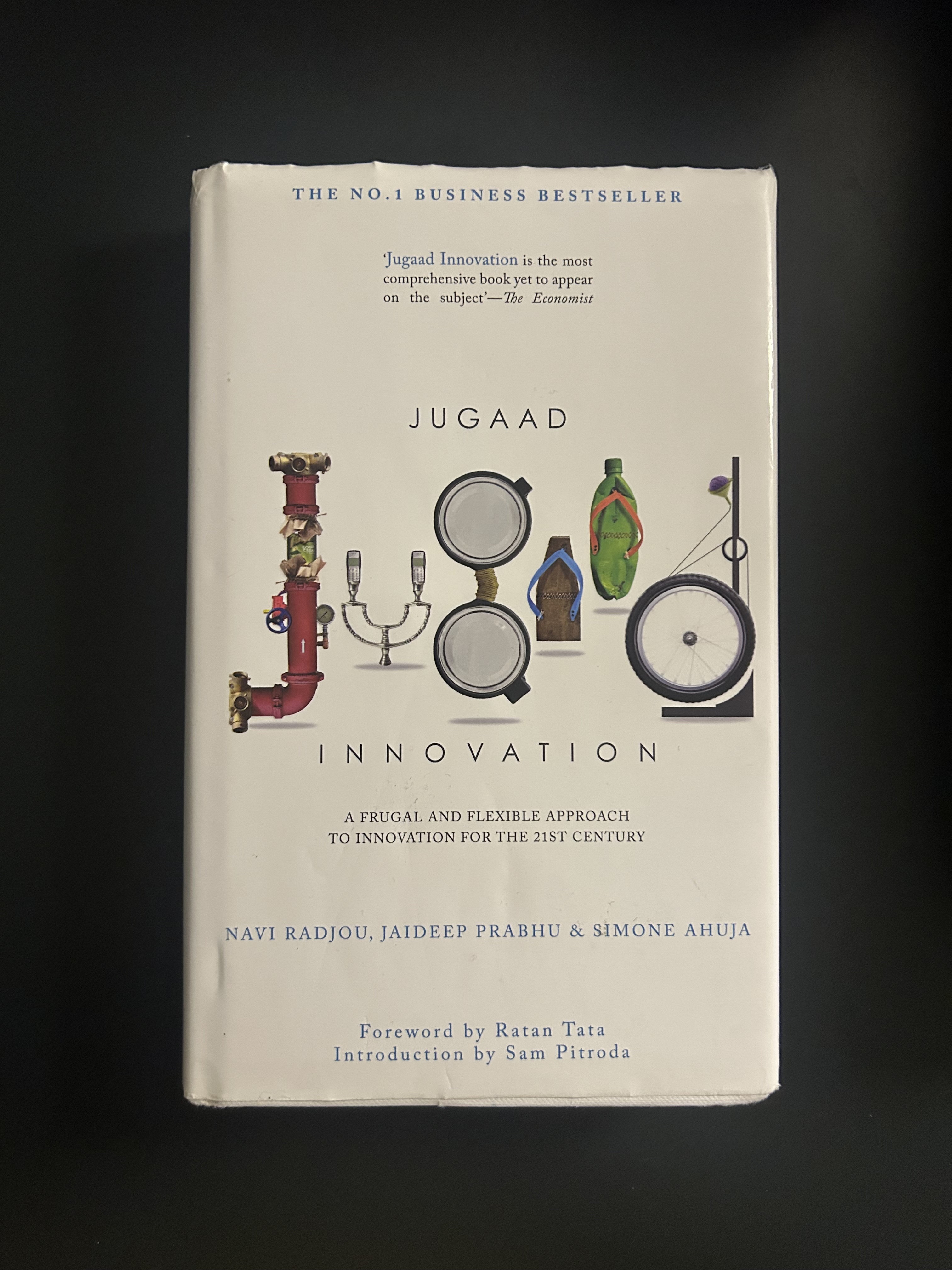
As I got more involed in entrepreneurship, I frequently found myself in and out of Vanderbilt's incubator, "The Wond'ry". One day, I saw this book titled: "Jugaad Innovation". The word "Jugaad" convinced me to pick up the book. "Jugaad" is a common word in both Urdu and Hindi and it loosely translates to "finding a hack". I use the word "hack" with caution because I do not think it captures the complexity of what "jugaad" is. For me, jugaad was something you took immense pride in. It was all about being resourceful. In a simple equation of solving a problem, if your solution is optimized to solve the problem with the fewest resources, you had just done a "jugaad". Even though I was well aware of the term, I was surprised that I never actively thought about it in my work. It is my privelege that I am a part of a lab that has always had plenty of resources so I never had to think about scarcity- something that I remember was a big theme in my childhood.
I checked out this book and started reading and it was a great reality check. We have repeatedly heard the talks of sustainability that directly comes from this idea of scarcity finding its way across global markets. Jugaad is all about creating the most value out of the least resources with a heavy focus on sustainability. And it makes sense! A dear friend recently told me: "Wherever you end up, I know you will end up giving more than you take" I do not know how true it is right now but that is the person I aspire to be. And my accidental encounter with this book could not have come at a better time. This book left me with great insights into becoming that person who gives more than they take.
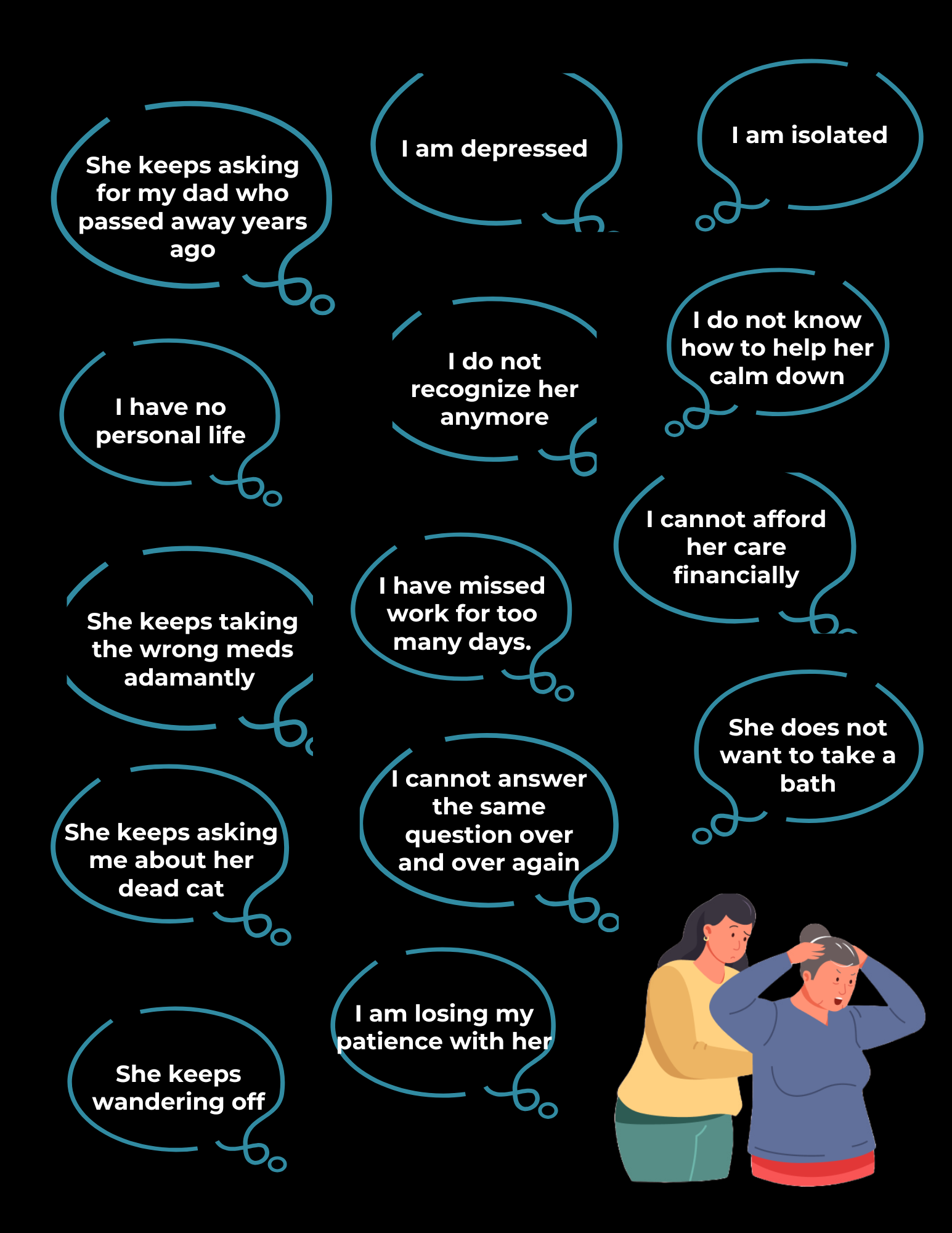
On a random day in 2023, one of the Ph.D. students in my lab asked if I would join an incubator program with her. I cannot express how happy I am that I said yes. The program had nothing to do with my work. She had a business idea she wanted to test and she needed a partner for support. And there I was. I knew very little about her idea. I did not want to get into entrepreneurship and I had too much on my plate already. But I said yes. One of the requirements of that program was to interview potential customers. You have an idea, great? Now go talk to the potential customers and see what they want. But there's a catch. You cannot mention your idea to them! I reached out to people and I conducted these customer discovery interviews and it changed what tech meant to me. Yes, tech, by itself, is cool but there is something about tech that's behind a sigh of relief. That experience was so invaluable that when I had my own idea to build an AI agent to support dementia care, I went back to the incubator and I interviewed my new customer base all over again.
The dementia project is my favorite of all because I could see how much it was needed. My 30 minutes scheduled meetings turned into 1 hour and sometimes over 2. But I listened to what was missing. My initial idea changed completely and my drive to bult the product skyrocketed. Between balancing my Ph.D. with this project, I am struggling to keep a balance but I am on it everyday. I make little progress and sometimes it feels like the most meaningful work I have done all day. And you know why that is? Because the words of my potential users expressing their unmet needs echo in my head.
